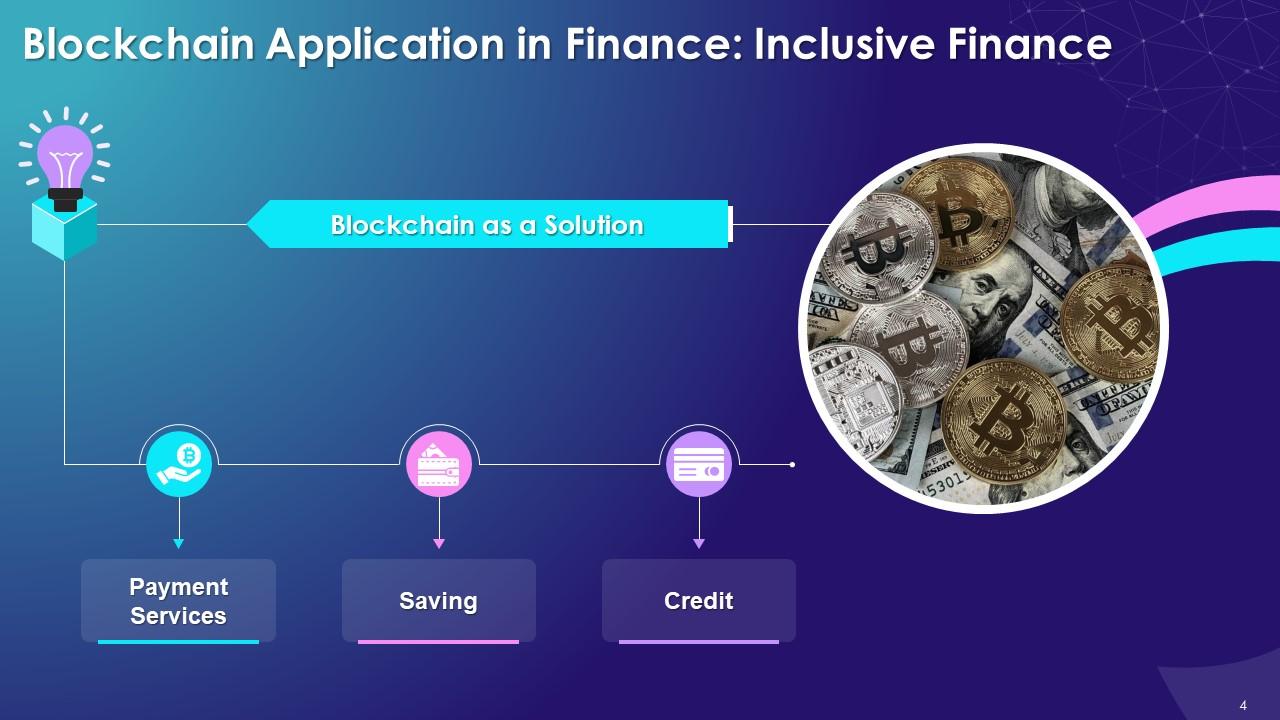The Future Of Blockchain In Financial Inclusion
Financial inclusion has long been a pressing issue worldwide. The lack of access to affordable financial services hinders economic development and disproportionately affects marginalized communities. The advent of blockchain technology has sparked hope that financial inclusion may finally be within reach. But what exactly does the future of blockchain in financial inclusion hold?

- The Future Of Blockchain In Digital Identity And Privacy
- The Role Of Tokenomics In Cryptocurrency Value Creation
- The Rise Of Decentralized Exchanges: Revolutionizing The Crypto Trading Landscape
- Unveiling The Power Of Zero Knowledge Proofs In Protecting Your Cryptographic Identity
- Digitizing The Supply Chain: How Blockchain Is Revolutionizing The Future Of Commerce
Blockchain’s decentralized nature allows for secure and transparent transactions without the need for intermediaries. In financial inclusion, this means that individuals and small businesses in underserved areas can finally participate in the global economy without relying on traditional banking systems.
One area where blockchain can make a significant impact is in the realm of identity verification. Currently, many individuals lack formal identification, making it impossible for them to access financial services. Blockchain-based identity solutions can change this by providing a digital identity that is both secure and accessible.
For instance, Estonia, a Baltic nation, has already integrated blockchain into its national identity scheme. This allows Estonians to securely store their personal data and use it to access various government and private services. This model can be replicated in developing countries where millions lack access to even basic identification.
Another promising area is mobile payment systems. In recent years, mobile phone penetration has skyrocketed in developing countries. Blockchain-based mobile payment systems can leverage this existing infrastructure to provide affordable and secure financial services.
Kenyan-based M-Pesa is an excellent example of how mobile payment systems can bridge the financial inclusion gap. Launched in 2007, M-Pesa allows users to store and transfer funds using their mobile phones. By integrating blockchain technology into mobile payment systems like M-Pesa, security and transparency can be significantly enhanced, opening the door to even wider adoption.
Remittances is another key area where blockchain can make a significant impact. Every year, millions of foreign workers send billions of dollars in remittances back to their families in their home countries. However, this process is often plagued by high fees and long transfer times.
Blockchain-based solutions can simplify and reduce the costs associated with remittances. For instance, Abra, a blockchain-based remittance platform, allows users to transfer funds across the globe in real-time with significantly lower fees than traditional remittance services.
Despite these promising developments, challenges remain. One significant hurdle is regulation. Blockchain operates in a regulatory grey area, making it challenging for blockchain-based financial inclusion solutions to operate in many countries.
Furthermore, while blockchain provides a secure and transparent way to process transactions, the underlying infrastructure required to support this infrastructure is often lacking in developing countries. For instance, reliable internet access and mobile coverage are essential for blockchain-based mobile payment systems to operate effectively.
Finally, there is a pressing need for better education and awareness about blockchain technology. While many recognize the potential of blockchain in financial inclusion, few truly understand how it works. This lack of understanding creates skepticism and mistrust, which can hinder its adoption.
As the world becomes increasingly interconnected, financial inclusion is more critical than ever. Blockchain technology offers a viable solution to bridge this gap. While challenges remain, the potential of blockchain in financial inclusion is undeniable. With further innovation, cooperation, and education, blockchain can democratize access to financial services, ultimately empowering millions worldwide.
Notable projects and ventures have notably demonstrated the possibility and complexity of giving low-income communities new pathways. Many blockchain teams now continue working with industry stakeholders to enhance basic business knowledge for working as well as working at low-cost data price costs.
Going forward, new innovations in blockchain solutions will surely improve the environment of data implementation and costs. And by empowering financial participation, blockchain could play a key transformative role on global expansion in the financial industry – indeed leading economic development on the way.
